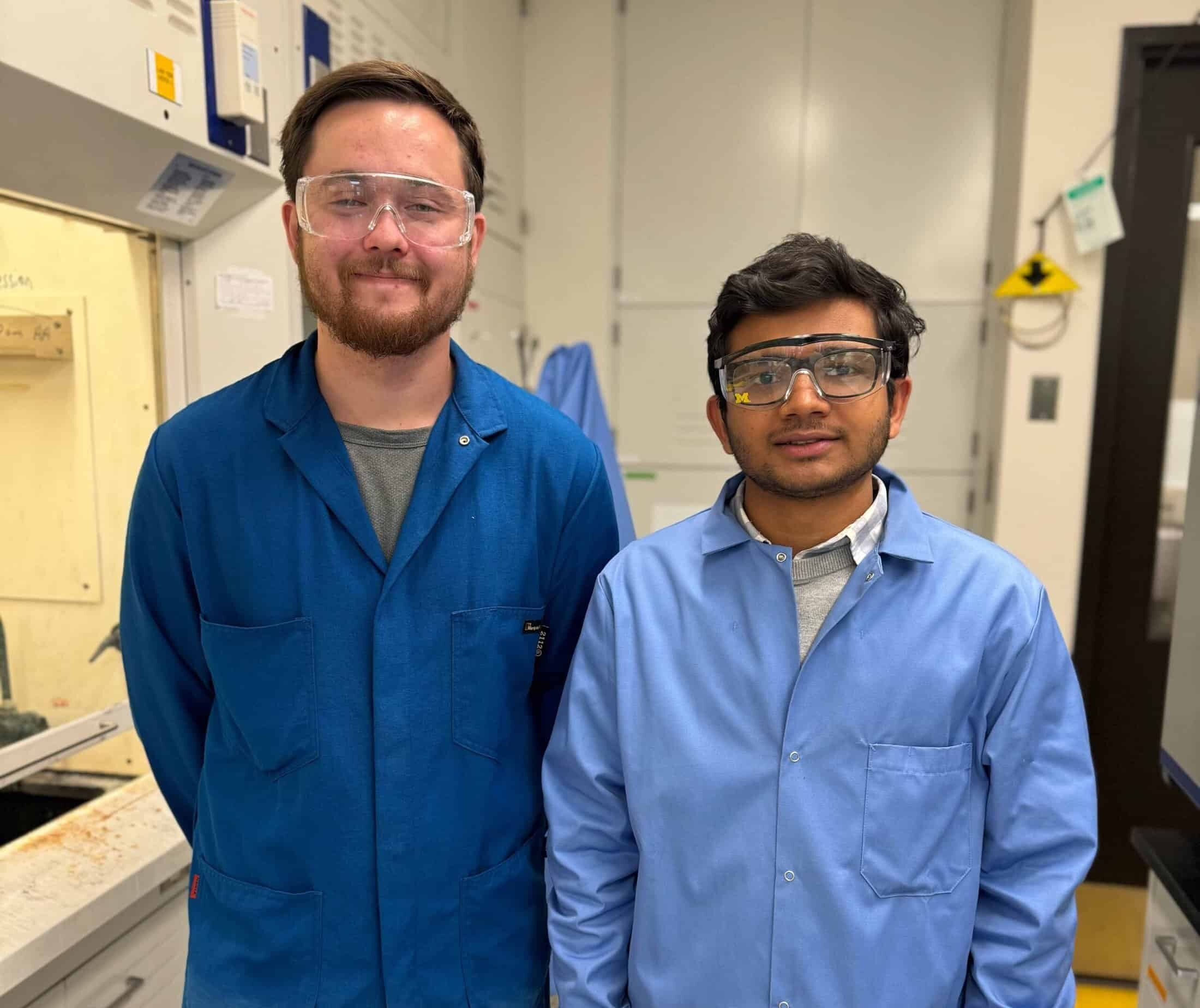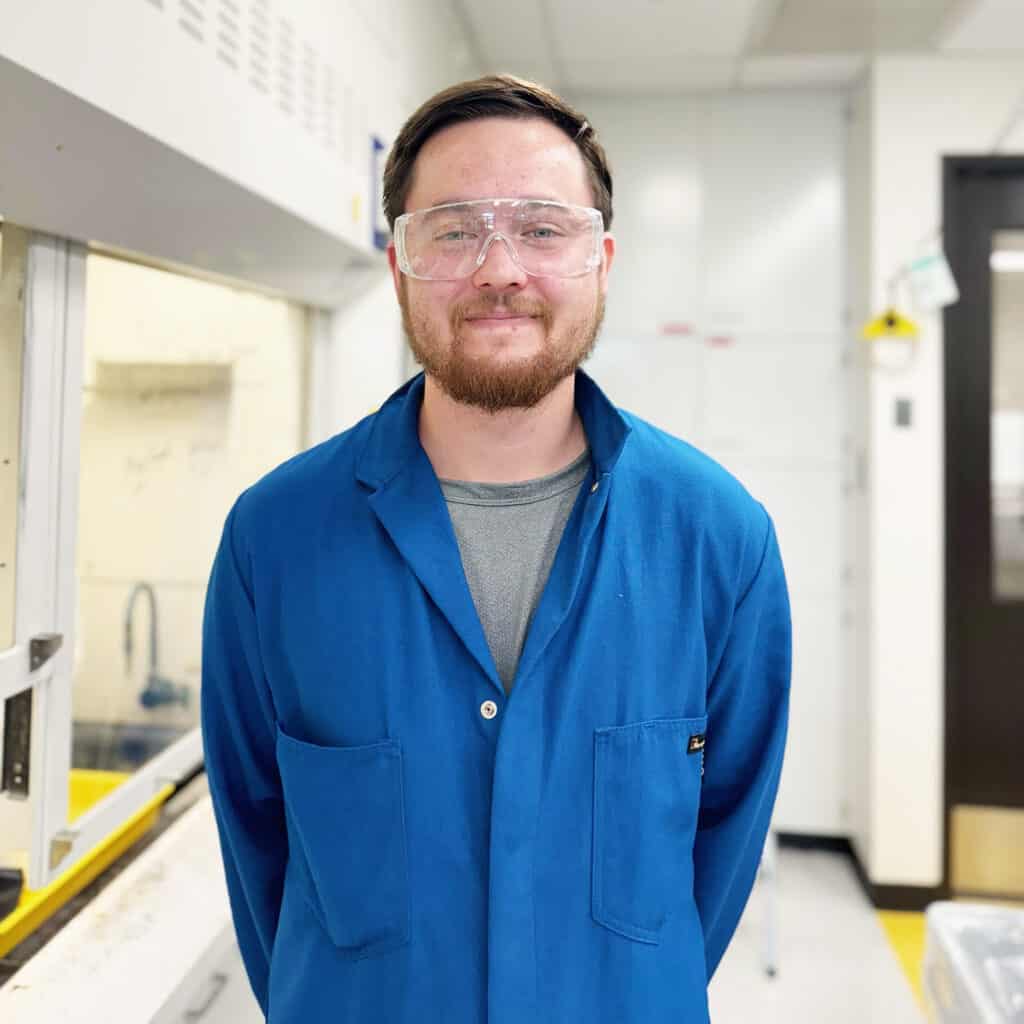
Harsh Patel receives NWRI/AMTA Fellowship for Membrane Technology
The fellowship supports the development of an advanced method for decontaminating nitrate-polluted water.

The fellowship supports the development of an advanced method for decontaminating nitrate-polluted water.
Harsh Patel, a PhD student in the U-M Department of Chemical Engineering, has received a National Water Research Institute (NWRI) and American Membrane Technology Association (AMTA) Fellowship for Membrane Technology. The fellowship provides funding for graduate research projects that advance the development of membrane technology in the water, wastewater, or water reuse industries.
“I am extremely honored to have received this award,” said Patel. “It supports both my academic and professional growth. Advancements from this work could have significant implications for improving water quality and addressing the growing demand for clean water in both developed and developing regions.”
“Advancements from this work could have significant implications for improving water quality and addressing the growing demand for clean water in both developed and developing regions.”
Harsh Patel
Chemical Engineering PhD Student
Patel’s research aims to develop advanced anion-exchange membranes (AEMs) to selectively remove nitrate from contaminated water. Through his research, Patel hopes to address the global challenge of nitrate pollution, which poses significant health risks to humans by converting to nitrite in water, impairing oxygen transport in the blood.
“Electrodialysis is a promising method for efficient nitrate removal, utilizing ion-exchange membranes (IEMs) and an electric field to separate ions. However, most commercial IEMs struggle to differentiate similarly charged ions like nitrate and chloride,” he said. “Our goal is to address these limitations by developing a one-step, green synthesis process for membranes with varied hydrophobicity while isolating other membrane properties like water and charge content.”
Patel’s research will enable the discovery of design parameters to synthesize desirable IEMs that can effectively remove nitrate from contaminated water sources, offering a scalable and environmentally friendly solution compared to previous methods that have involved complex synthesis techniques and hazardous solvents.
“It’s been wonderful working on this project alongside my undergraduate researcher, Alex Bentley, who generated a bulk of the preliminary results for this work, and I am excited to take the project to completion working alongside him,” said Patel.


Bentley designed and performed the reactions to synthesize novel monomers and used these to synthesize and characterize membranes. Currently, he is collaborating with Patel to perform nitrate/chloride and nitrate/sulfate selectivity experiments on these membranes.
“I have put a lot of work into the project and believe that it can have a positive impact on water treatment efforts,” Bentley said. “ I am very happy and encouraged by NWRI’s recognition of our work.”
“I have put a lot of work into the project and believe that it can have a positive impact on water treatment efforts. I am very happy and encouraged by NWRI’s recognition of our work.”
Alex Bentley
Chemical Engineering Undergraduate Student
Recipients of the fellowship receive a $10,000 award to support one year of their research.
Harsh Patel is a current Chemical Engineering PhD student and graduate research assistant in the Kamcev Lab, a research group that aims to develop high-performance membranes for water treatment and energy generation and storage applications. He received his bachelor’s degree in Chemical and Biomolecular Engineering from the Georgia Institute of Technology in 2021, and is a past recipient of the AMTA/Reclamation Fellowship for Membrane Technology in 2022.